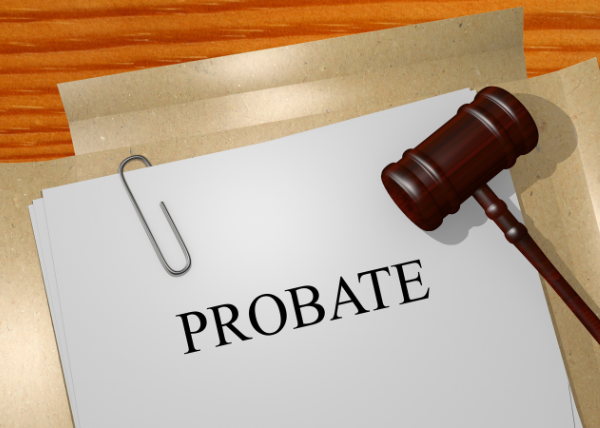
When a person passes away without a will, the probate process takes a turn, introducing challenges and considerations that demand careful attention. At Senior Advocate Center, our mission is to provide valuable insights and resources to empower seniors in their estate planning journey, ensuring that even in the absence of a will, the probate process can be navigated with clarity and understanding.
For starters, it's crucial to know what probate is and how the process works. Probate is the legal process that occurs after a person dies. It involves handling the deceased's assets, settling debts, and distributing any remaining property to beneficiaries according to state laws. Generally, this process is overseen by a court-appointed executor who must take an inventory of all assets and liabilities of the estate, pay any necessary taxes or creditors, and ultimately distribute assets to beneficiaries.
The probate process serves as the legal mechanism through which a deceased person's estate is settled, assets are distributed, and debts are addressed. However, when an individual passes away without a will, known as dying "intestate," the probate journey takes on a distinctive trajectory.
Understanding the probate process without a will is crucial for seniors and their families. At the Senior Advocate Center, we strive to empower seniors with the knowledge and resources needed to navigate these legal intricacies, fostering clarity and confidence in the face of estate administration challenges.
Intestate succession laws are the regulations that dictate how a deceased person's assets are distributed if they have not left behind a valid will. Generally, intestate succession laws determine who is eligible to receive assets based on biological or adoptive relationships, such as spouses, domestic partners, children, parents, siblings, grandparents, and more. These laws vary by state and may also include step-relationships and former partners in certain circumstances.
Navigating the probate process without a will introduces a set of challenges that can complicate the distribution of assets and settle the affairs of the deceased. Understanding these challenges is crucial for seniors and their families facing the prospect of intestacy. Here are key challenges that may arise when there isn't a will:
Without a will to specify the deceased's wishes, state intestacy laws dictate the distribution of assets. This standardized approach may not align with the individual's preferences, potentially leading to outcomes that differ from what the person would have intended.
Identifying legal heirs becomes a critical aspect of the probate process. In the absence of a will, the court relies on intestacy laws to determine heirs, which may result in complex family structures needing careful examination to establish rightful beneficiaries.
The lack of a clear directive in the form of a will can lead to disagreements among family members regarding asset distribution. These disputes may prolong the probate process and strain familial relationships, requiring mediation or legal intervention.
The appointed administrator faces the challenge of managing the estate's affairs without the guidance of a will. Responsibilities include identifying assets, settling debts, and distributing remaining assets according to intestacy laws—a task that can be complex and time-consuming.
The absence of a will may result in unforeseen tax consequences for the estate and heirs. Understanding the potential tax implications and seeking professional advice is crucial to avoid unexpected financial burdens.
Unlike a will, which allows for a personalized approach to asset distribution, intestacy laws provide a predefined formula. This lack of flexibility may not align with the deceased's wishes or the financial needs of the heirs.
If the deceased had dependents, the absence of a will means there is no designated guardian specified for their care. The court may need to determine custody arrangements, considering the best interests of the children.
The probate process without a will may incur higher costs due to the additional complexities involved. Legal fees, administrative expenses, and potential litigation can contribute to an increased financial burden on the estate.
Navigating these challenges requires a proactive and informed approach. Seniors and their families are encouraged to seek legal guidance to understand state-specific intestacy laws and explore strategies to mitigate potential complications during the probate process without a will.

An experienced estate planning attorney is a priceless asset when navigating the probate process without a will. The complexities in intestacy and the potential challenges that may arise underscore the importance of legal expertise. Here's how an attorney can provide invaluable assistance:
An estate planning attorney is well-versed in intestacy laws. They can interpret these laws according to your state's regulations and your specific situation, ensuring that asset distribution complies with legal requirements and maximizes the benefits for heirs.
Determining legal heirs can be a confusing process, especially in complex family structures. Attorneys bring clarity by guiding the administrator through the identification of heirs based on the state's intestacy laws, minimizing the risk of disputes.
The appointed administrator receives support from an attorney in managing the probate process. This includes the preparation of necessary documents, filing petitions with the court, and ensuring that all legal requirements are met throughout the administration.
In the event of family disputes or disagreements among heirs, things can get heated. An estate planning attorney can facilitate mediation and provide legal strategies to resolve conflicts amicably. Their expertise contributes to maintaining family harmony during a potentially challenging time.
Attorneys specializing in estate planning possess a deep understanding of tax implications related to the probate process. They can provide strategic advice to minimize tax burdens on the estate and heirs, ensuring compliance with relevant tax laws.
While addressing the immediate concerns of intestacy, an attorney can also offer guidance on long-term estate planning. They may recommend creating trusts, advance directives, and other instruments to provide a more comprehensive and tailored approach to estate management.
Should legal issues arise during the probate process, an attorney can provide skilled representation in court. This includes addressing challenges, responding to creditor claims, and advocating for the best interests of the estate and heirs.
If dependents are involved, an attorney can assist in matters of guardianship, helping to establish custody arrangements that prioritize the well-being of the children. Their legal expertise ensures adherence to relevant family laws.
With an attorney guiding the probate process, there is a higher likelihood of a timely resolution. Their experience streamlines administrative tasks, reduces procedural delays, and contributes to the efficient settlement of the estate.
Securing the services of an estate planning attorney is an investment in clarity, legal compliance, and peace of mind during a challenging period. Their role is pivotal in navigating the probate process without a will, providing seniors and their families with the support needed to address legal complexities with confidence. Contact us today.
Our expert partner attorneys offer free consultations for your claim.